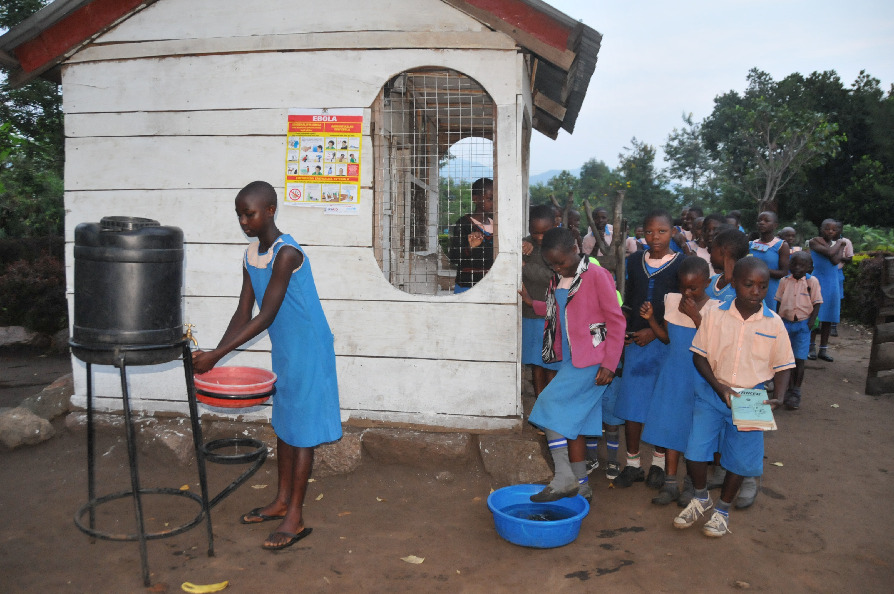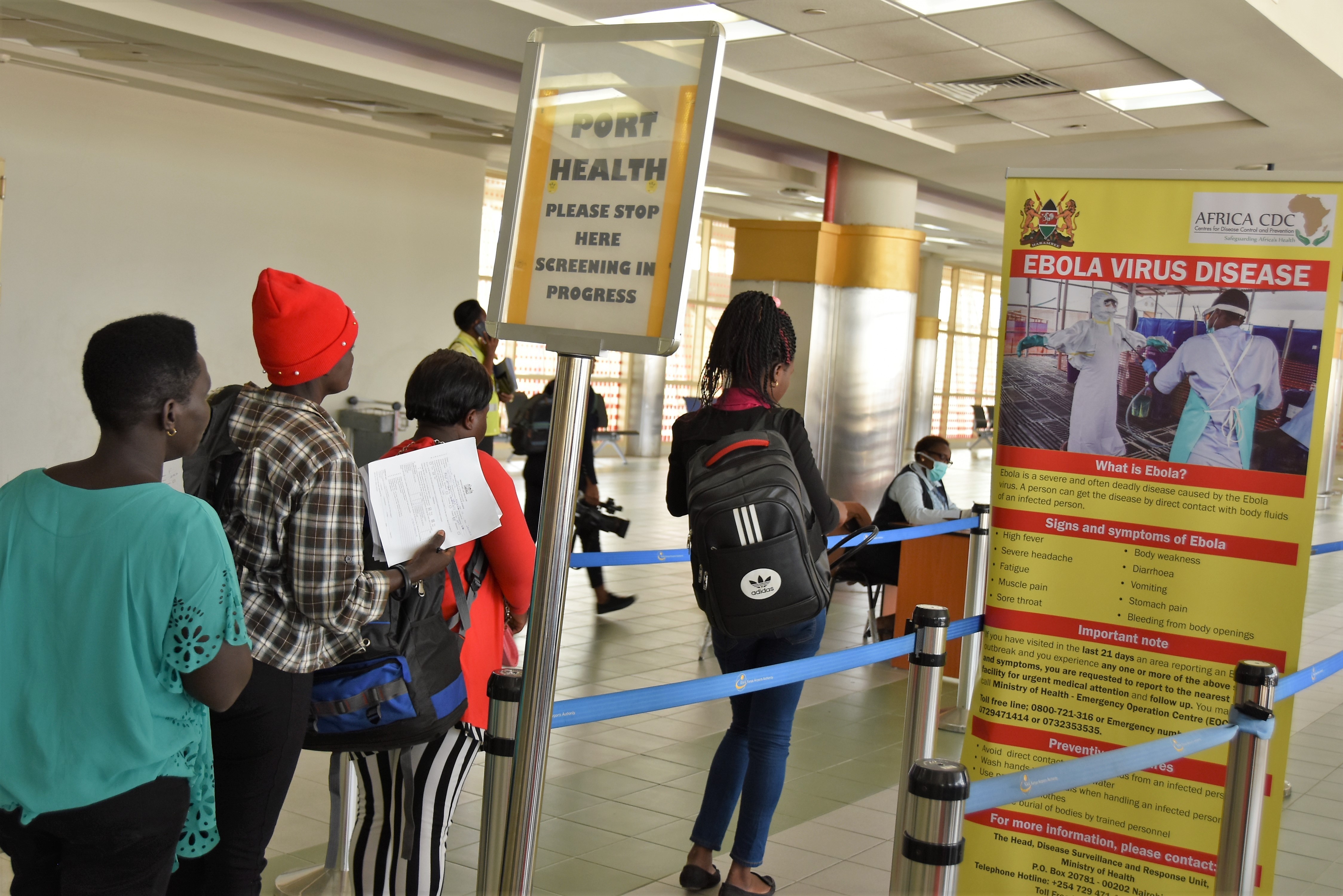
Pupils queue to wash their hands with chlorinated water to prevent the spread of Ebola at the St. John Kamasasa Primary School in Kasese district, Western Uganda, June 18, 2019. Uganda's Ministry of Health has so far registered three confirmed cases of Ebola after the deadly disease spread over the border from Democratic Republic of Congo. (Xinhua/Nicholas Kajoba)
GENEVA, July 17 (Xinhua) -- World Health Organization (WHO) Director-General Tedros Adhanom Ghebreyesus on Wednesday declared the Ebola virus disease outbreak in the Democratic Republic of the Congo (DRC) a Public Health Emergency of International Concern (PHEIC).
The declaration followed a meeting of the International Health Regulations Emergency Committee for Ebola virus disease in the DRC, the fourth of its kind since the outbreak was declared on August 1 of 2018.
The Committee cited recent developments in the outbreak in making its recommendation, including the first confirmed case in Goma, a city of almost two million people on the border with Rwanda, and the gateway to the rest of DRC and the world.
Latest UN figure has showed that that some 650 people have died in the current outbreak, while about 12 new cases are reported every day.

A man is screened for Ebola virus disease (EVD) at the Kenya-Uganda border in Busia, Kenya, June 19, 2019. (Xinhua/Fred Mutune)
"It is time for the world to take notice and redouble our efforts. We need to work together in solidarity with the DRC to end this outbreak and build a better health system," said the WHO head.
"Extraordinary work has been done for almost a year under the most difficult circumstances. We all owe it to these responders -- coming from not just WHO but also government, partners and communities -- to shoulder more of the burden," he noted.
Since it was declared almost a year ago, the outbreak has been classified as a level 3 emergency - the most serious - by WHO, triggering the highest level of mobilization.
The UN has also recognized the seriousness of the emergency by activating the Humanitarian System-wide Scale-Up to support the Ebola response.
However, besides recommending a PHEIC and making specific recommendations related to this outbreak, the International Health Regulations Emergency Committee for Ebola virus disease in the DRC on Wednesday also expressed disappointment about delays in funding which have constrained the response.
At the same time, the Committee reinforced the need to protect livelihoods of the people most affected by the outbreak by keeping transport routes and borders open, saying that it is essential to avoid the punitive economic consequences of travel and trade restrictions on affected communities.

Passengers queue to be screened upon arrival at the Jomo Kenyatta International Airport (JKIA) in Nairobi, capital of Kenya, June 17, 2019. (Xinhua/Allan Mutiso)
"It is important that the world follows these recommendations. It is also crucial that states do not use the PHEIC as an excuse to impose trade or travel restrictions, which would have a negative impact on the response and on the lives and livelihoods of people in the region," said Professor Robert Steffen, chair of the Emergency Committee.
Earlier on Monday, the WHO and the UN Office for the Coordination of Humanitarian Affairs (OCHA) jointly hosted a high-level meeting on the Ebola outbreak in DRC, calling for more supports.
"Together with the government, we can and will end this outbreak. We have better public health tools than ever to respond to Ebola, including an effective vaccine," said the WHO director-general.
In a joint statement released after Monday's high level meeting, the two UN agencies said the outbreak is still confined to the provinces of North Kivu and Ituri, but that the response is "at a critical juncture".
"WHO assesses the risk of spread to neighboring provinces and countries as very high," the statement said.
Saying that everything possible is need to be done now, UN Under-Secretary-General for Humanitarian Affairs and Emergency Relief Coordinator Mark Lowcock said that the world must try the best to avoid reaching the scale of the outbreak in West Africa five years ago when more than 10,000 lives were lost before a multi-billion-dollar response brought the cases down to zero.



